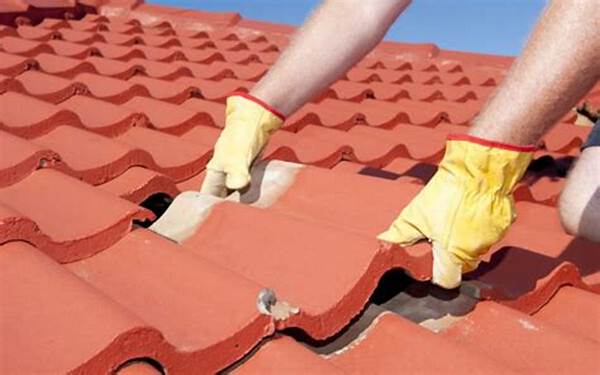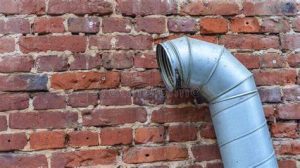Introduction
The efficient management of the physical attributes of a sectional title scheme an important function of the body corporate. The body corporate have certain responsibilities in regard to the maintenance, repair and replacement to the buildings making up the scheme. Sometimes the changes to the scheme go beyond mere maintenance, and fall into the realm of improvements to common property. The reason why this is significant is that the authority required to approve the improvements and the legal process that needs to be followed varies from the authorisation of maintenance projects.
Authority for maintenance
The cost of maintaining common property forms part of the annual budget set by the body corporate. The trustees may make decisions that concern the day-to-day administration of the body corporate, including maintenance of common property that falls within the trustees’ expenditure limit.
Trustee spending can be limited by ordinary resolution of the body corporate in terms of section 7(1) of the STSM Act. If the total cost of maintenance is above the trustee’s spending limit, the maintenance must be authorised at a general meeting by an ordinary resolution of the body corporate.
The distinction between repair and replacement
If the parts of the building making up the scheme become deteriorated due to its age and design and are beyond effective repair, and the only permanent solution will be a replacement, then the replacement could either fall within maintenance, or be an improvement to the common property, depending on the circumstances. It may be that the existing material cannot be repaired or replaced with the same material. If, for example, the wooden window frames are replaced with new wooden windows made of the same wood, then the project would not be considered an improvement to the common property, but merely a replacement maintenance project. If, however, the wooden window frames are replaced with aluminium ones, then the replacement would be considered a useful and necessary improvement to common property.
The distinction between maintenance and improvements to common property
There are various types of physical improvements can be made to the scheme.Maintenance and improvements are authorised differently, and it is for this reason that it important to understand what the distinction between maintenance of common property and improvements to the common property is.
Maintenance strives to keep the common property in its original state of appearance and functionality. If the parts of the building making up the scheme become deteriorated due to its age and design and are beyond effective repair, and the only permanent solution will be a replacement, then the replacement could either fall within maintenance or be an improvement to the common property depending on the circumstances. The trustees have the discretion to authorise maintenance of common property subject to the approved budget and any directions or restrictions imposed.
Improvements add to, alter or upgrade the common property. Improvements include the painting of the scheme in a different colour; the installation of generators or solar panels, or the addition of a swimming pool. Improvements need to be authorised by the body corporate (depending on what type of improvement is being added) as the common property of a scheme is owned by all the owners in undivided shares. In what follows we will discuss various type of improvements as well as the authority required to approve them and the legal process that needs to be followed.
Two types of improvements to common property
Previously improvements to common property were divided into two categories, namely luxurious and non-luxurious improvements. With the advent of the Sectional Titles Schemes Management Act 8 of 2011 (the “STSM Act”) and the prescribed rules (“PMRs” and “PCRs”) made thereunder the categories were re-named as reasonably necessary and not reasonably necessary improvements to common property. In what follows we will set out the requirements for authorising these improvements to common property.

Reasonably necessary improvements to common property
PMR 29(2) makes provision for the body corporate to make alterations or improvements to common property that are reasonably necessary. It states that:
“The body corporate may propose to make alterations or improvements to the common property that are reasonably necessary; provided that no such proposal may be implemented until all members are given at least 30 days written notice with details of:
a) The estimated costs associated with the proposed alterations or improvements;
b) Details of how the body corporate intends to meet the costs, including details of any special contributions or loans by the body corporate that will be required for this purpose; and
c) A motivation for the proposal including drawings of the proposed alterations or improvements showing their effect and a motivation of the need for them;
And if during this notice period any member in writing to the body corporate requests a general meeting to discuss the proposal. The proposal must not be implemented unless it is improved, with or without amendment, by a special resolution adopted at a general meeting.”
Not reasonably necessary improvements to common property
PMR 29(1) deals with alterations that are not reasonably necessary, and states that:
“The body corporate may on the authority of a unanimous resolution alterations or improvements to the common property that is not reasonably necessary.”
Conclusion
It is not always clear whether a project that needs to be undertaken at a scheme is merely maintenance, or something more like replacement, or even amounts to an improvement to common property. Where trustees are unsure how to authorise, fund and execute a bigger project in the scheme we recommend the trustees seek the advice of their managing agent or a sectional title attorney that can point them in the right direction on the appropriate process to follow.







![Case discussion on SS Glen High v Kruger NO ((2023/055133) [2024] ZAGPJHC 1059 (10 September 2024)](https://b2659803.smushcdn.com/2659803/wp-content/uploads/2024/10/OIP-300x200.jpeg?lossy=1&strip=1&webp=1)




